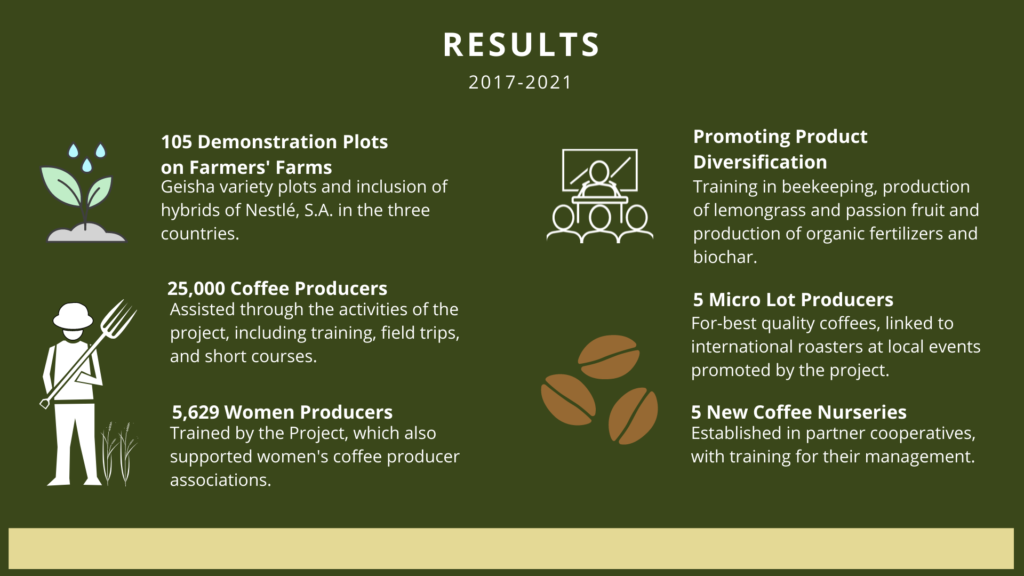3 Main Problems Faced by Coffee Growers

Coffee Leaf Rust Disease 
Climate Change 
Low Coffee Prices
To meet these challenges, the Resilient Coffee for Central America Project helped smallholder coffee farmers in Guatemala, Honduras, and El Salvador obtain sustainable livelihoods through the introduction of new coffee hybrids and improved varieties that are more resistant to diseases and climate change and are higher yielding.
Resilient Coffee in Central America was a three-year (2017-2021) project supported by USAID and implemented by the Texas A&M University System – AgriLife Research through the Norman Borlaug Institute for International Agriculture, with the purpose of creating an evidence-based, more robust and resilient coffee sector in the three Northern Triangle countries of Central America.
Project Objectives:
- Coffee cultivation designed to be resilient against climate variability: Promote the implementation of climate resilient agriculture, good environmental management and good agricultural practices (GAPs).
- Coffee resilience in the region: Encourage the adoption of more resilient coffee hybrids and varieties and improved crop management, as well as better coffee processing practices to ensure stronger market links, better quality products and product diversification.
- Research and knowledge transfer: Work with strategic partners in the region to strengthen the involvement of coffee advisors and producers to demonstrate hybrids and varieties resistant to coffee rust, promote the adoption of sound crop management practices, and establish crop nurseries to promote the profitable and sustainable coffee production.
- Better quality of life, job creation, income generation: Improve the livelihoods of smallholder farmers, who represent more than 95% of all coffee producers worldwide, and their families through training in opportunities and improved practices throughout the coffee value chain.

The Atlantic: Coffee Rust is Going to Ruin Your Morning

